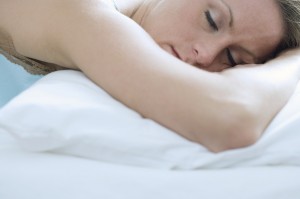 Very few of us like to be told what or how to eat. Luckily, when it comes to improving your sleep, the list of “do’s and don’ts” is pretty short. However, just because this list is short doesn’t mean it’s not important. If you want to eliminate the urge to pull, you must establish a good quality sleep pattern. These dietary changes can help dramatically.
Very few of us like to be told what or how to eat. Luckily, when it comes to improving your sleep, the list of “do’s and don’ts” is pretty short. However, just because this list is short doesn’t mean it’s not important. If you want to eliminate the urge to pull, you must establish a good quality sleep pattern. These dietary changes can help dramatically.
Dietary Changes to Improve Sleep
What you put into your mouth and when you consume it can have a huge impact on the quality and quantity of your sleep. Here are some general rules to help you saw some more logs.
First, some things to avoid:
- Avoid alcohol. A small amount can help induce sleep initially, but it invariably disrupts deeper sleep cycles later.
- Avoid tobacco. While smoking may seem to have a calming effect, nicotine is actually a neuro-stimulant and can cause sleep problems.
- Avoid caffeine-containing beverages, especially after lunch. This includes coffee, black tea (hot or cold), and soda. If you need a pick-me-up, try exercise, taking some quick deep breaths or green tea instead.
- Avoid bacon, cheese, chocolate, eggplant, ham, potatoes, sauerkraut, sugar, sausage, spinach, tomatoes, and wine close to bedtime. These foods contain tyramine, which increases the release of norepinephrine, a neurotransmitter that stimulates the brain and can disrupt sleep.
- Avoid sugar and white flour products within 3-4 hours of bedtime. They can cause blood sugar and neurotransmitter fluctuations that can disrupt sleep.
- Avoid taking nasal decongestants and other cold medications late in the day. While many ingredients in these preparations are known to cause drowsiness, they can have the opposite effect on some people and act as a stimulant.
Things to consume:
- In the evening, eat turkey, bananas, figs, dates, yogurt, and whole grain crackers or nut butter. These foods are high in carbohydrates and tryptophan, which promotes sleep. Eating a grapefruit half at bedtime also helps some people.
- Cherries and ginger have also been shown to help raise melatonin levels, which can help you not only fall asleep, but stay asleep. You can either eat cherries or take dark cherry concentrate (available at many health food stores) at dinner or as a snack before bed. As for ginger, either add it to your evening meal or make a nice cup of ginger tea and sip before bed:
Ginger tea
- 4 cups water
- 2-inch piece of fresh ginger root
- Honey and lemon slice (optional)
Peel the ginger root and slice it into thin slices. Bring the water to a boil in a saucepan. Once it is boiling, add the ginger. Cover it and reduce to a simmer for 15-20 minutes. Strain the tea. Add honey and lemon to taste. Note: this is also an excellent elixir for indigestion, nausea, colds, flus and sore throats.
- Have a cup of tea that contains soothing, calming, relaxing herbs such as chamomile, passion flower, valerian, skullcap, spearmint and/or lemongrass along with tilita flowers, blackberry leaf, hawthorn berries or rosebud.
Getting quality sleep is vital to overall neurotransmitter balance. Because the urge to pull is directly tied to neurotransmitter function for most people, establishing a regular sleep cycle will help diminish the urge to pull over time. In addition, it will enable you to reduce and possibly eliminate the amino acid supplements needed to bring your neurotransmitter levels back into balance – so getting more ZZZs can save you a lot of $$$!

